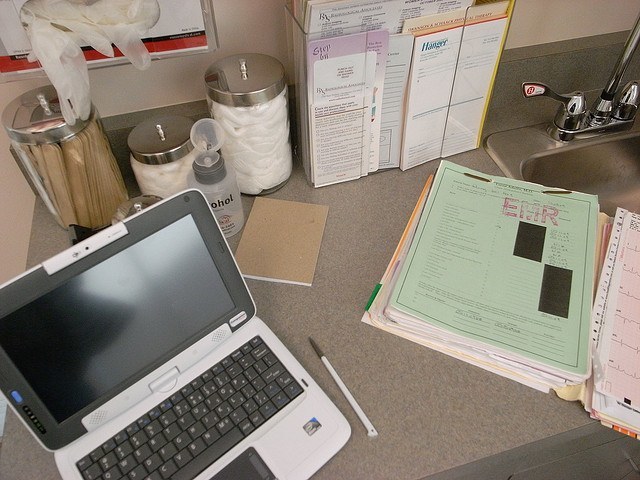
Patients’ online access to EHRs has nearly doubled, surging from 26 percent in 2011 to 50 percent in 2014, according to new study released by the National Partnership for Women & Families. In the last year, more than four in five patients with online access to their health records (86 percent) used their online records at least once – and more than half (55 percent) used them three or more times a year.
Engaging Patients and Families: How Consumers Value and Use Health IT offers an in-depth look at how patients value and use health IT such as EHRs, and which functions are important to them. The National Partnership report provides seven strategies to engage patients and families more effectively in their care. It is being released five years after the Health Information Technology for Economic and Clinical Health (HITECH) Act of 2009 was enacted and the Medicare and Medicaid EHR “Meaningful Use” Incentive Program began – and on the heels of the Office of the National Coordinator for Health Information Technology (ONC) releasing its 2015 Strategic Plan this week.
By repeating questions from 2011, the new survey identifies trends in patient attitudes, reflecting progress from the launch of the Meaningful Use and other federal and state programs to substantial adoption and use of EHRs today. Its new questions yield data on major new topics in discussion for health IT policies and programs, including patient-generated health data, patient care plans and mobile access.
Key Findings Summary
Among key findings in Engaging Patients and Families:
– Eighty percent of adults in the United States who have doctors and know what kind of record systems—electronic or paper—their doctors use said that their doctors use EHR systems. That is up from 64 percent in 2011;
– Eighty-five to 96 percent of all patients found EHRs useful in various aspects of care delivery, while only 57-68 percent saw paper records as useful;
– Consumers want even more robust functionality and features of online access than are available today, including the ability to email providers (56 percent); review treatment plans (56 percent), doctors’ notes (58 percent) and test results (75 percent); schedule appointments (64 percent); and submit medication refill requests (59 percent);
– Patients’ trust in the privacy and security of EHRs has increased since 2011, and patients with online access to their health information have a much higher level of trust in their doctor and medical staff (77 percent) than those with EHRs that don’t include online access (67 percent); and
– Different populations prefer and use different health IT functionalities. For instance, Hispanic adults were significantly more likely than non-Hispanic Whites (78 vs. 55 percent) to say that having online access to their EHRs increases their desire to do something about their health; [i] and African American adults were among the most likely to say that EHRs are helpful in finding and correcting medical errors and keeping up with medications. So specialized strategies may be necessary to improve health outcomes and reduce disparities in underserved populations.
Survey Background/Methodology
Harris Poll conducted the online survey of 2,045 adults who indicated that they have a primary doctor and their doctor keeps medical and health information in electronic or paper format. The survey was conducted between April 22 and May 7, 2014 on behalf of the National Partnership for Women & Families. The report includes a number of recommendations on the use of EHRs, online access, electronic communication and information sharing, privacy and trust, and designing and building for diversity.
The full report is available here: engaging-patients-and-families
Image credit: Tricia Wang 王圣捷 via cc
